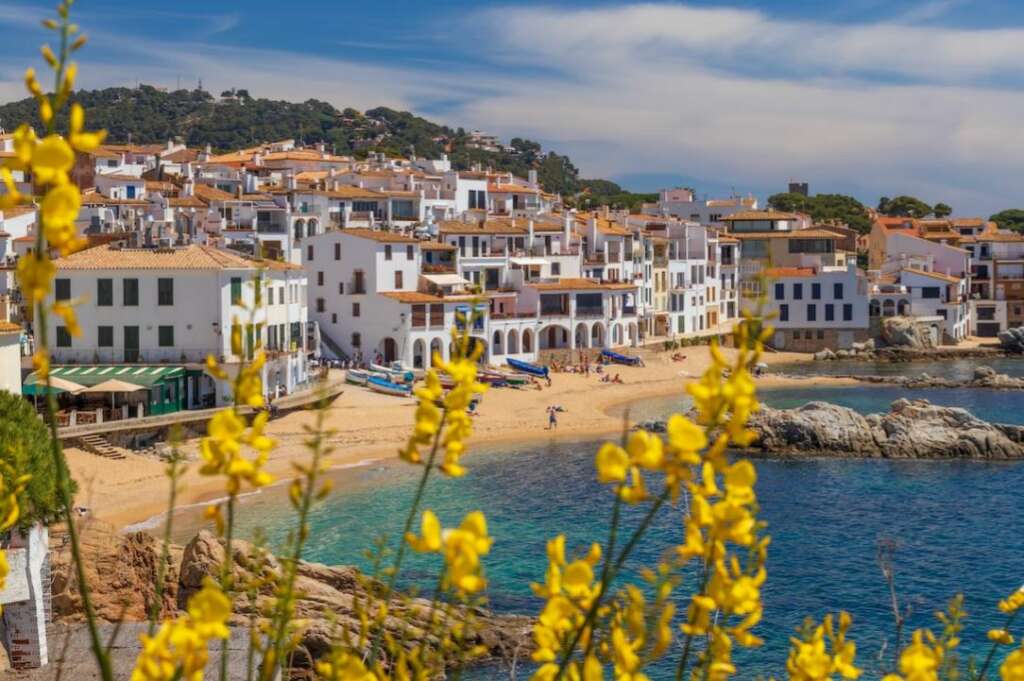5 reasons to be a TEFL teacher in Europe
So, you’re thinking about becoming a TEFL teacher in Europe? We can hardly blame you! There are umpteen reasons why this food-rich, culture-brimming corner of the globe might be beckoning, from the enthralling history sites to the natural wonders that await outside of the towns. This guide pinpoints just a few of them. As if you needed another nudge to get Europe bound this year!
The food

Europe has some of the best food in the world. Yep, move over Thailand street noodles. Take a hike, New York hotdog sellers. This is the land of the uber-famous Neapolitan pizza, the stomping ground of French culinary flair, the region of sizzling Spanish tapas. You’ll never go hungry as a TEFL teacher in Europe, no matter where you are. Naturally, some places stand out a little more than others. Italy is an obvious one. Jet into Rome to sample deep-fried artichokes and pastas infused with white wine and cream. Then there’s Austria, with its schnitzels and frothy beers. Then there’s southern Spain, where paella and patatas bravas combine with side jugs of Sangria.
The adventure

Despite being one of the most built-up and populous corners of the planet, Europe remains and indelibly wild place. Yes, cities like Paris and Madrid sprawl on for miles. But hop in the train or the car and you can whiz out of town to see jagged mountain ranges and wild canyons in no time. The Alps are worth a special mention here. They’re accessible from some of the mainstay TEFL destinations on the continent. Teachers in France, in Germany, Austria, Italy, and Switzerland can all get to them with ease, to ski and hike under Mont Blanc and the Matterhorn. Out east, Poland and Slovakia have the Tatras, while Spain beckons with dusty sierras aplenty.
The history

There are thousands of years of history on offer in Europe. Let’s take one potential TEFL destination as an example: Greece. Moments after stepping off the plane there you’ll be greeted by the soaring rises of the Parthenon, the home of democracy and a symbol of the power of ancient Athens. Beyond that are the UNESCO shrines of Delphi and the great temple-hospital complexes of Epidaurus. That’s a mere taster, though. France boasts chateaux from the Middle Ages, Portugal has Sintra’s glistening palaces, Spain offers the delights of Moorish-Christian cathedrals – it’s endless.
It’s safe

Europe isn’t Asia. Europe isn’t South America. Modern, developed, and lived-in, this part of the planet represents what’s we’d say is one of the most accessible and graduate-friendly regions for teaching. The whole place is widely homogenous, with similar forms of government and social organization from west to east, the climate is mild and not prone to natural disasters, and the continent is largely free of major political upheavals. If you’re not 100% sure that TEFL is for you or you’re concerned about moving somewhere overly exotic right away, this could be a top place to test the proverbial waters.
The TEFL opportunities

On a more practical note, Europe is still one of the booming TEFL regions of the planet. There are LOADS of jobs here across a diverse array of countries and destinations. Summer camps have long been a popular choice in Alpine regions like Italy and Switzerland. You can get well-paid positions in Spain that last all year, seeing you rake in something like €1,500/$1,500 per month. Nations like Poland, Slovakia, Slovenia, and Hungary are now big employers in both the online and offline TEFL world, too, while jobs as private tutors in western European countries like France and Germany are still in abundance.
If you’re a veteran TEFL teacher in Europe, then we’d love to hear any additions you might have to this list in the comments below. Alternatively, be sure to check out our destinations page for extra info on teaching in various European countries, and our courses page for info on how to get started on your European TEFL journey.
